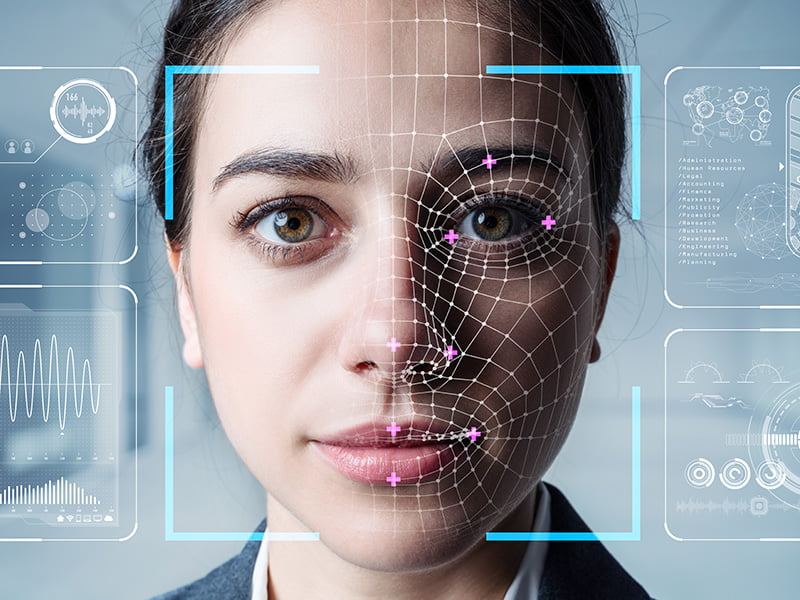
Digital Identity – What is it and do I need one?
 With digital transformation accelerating, people are increasingly living their lives online. The convenience of working, playing, socializing, and shopping online is resulting in a drastic shift in the way we experience our world.
With digital transformation accelerating, people are increasingly living their lives online. The convenience of working, playing, socializing, and shopping online is resulting in a drastic shift in the way we experience our world.
According to recent statistics, the average American spends a little over 7 hours a day in front of a screen! That means about half of every waking hour involves being engaged directly with technology. With so much of our lives spent online, the concept of our personal identities is shifting. It’s going digital.
Our identity is no longer confined to our birthplace, our mother tongue, or our local community. People are creating their digital identities as we embark on a new, technologically focused age. Our login details, user credentials, social media accounts, photos, communications, search history, and any other data converge to form our individual digital identities. Unfortunately, in many cases, this important info is exploited for profit by corporations and marketing departments.
Is it possible for people to take their digital lives back and reclaim their digital identities? Can we break free from selling personal information in exchange for “free” online services such as Facebook and Gmail? What does it mean to truly own your digital identity? Will the metaverse usher in a new era of the internet and enable people to have better control over their own data, or is this just a ruse that will concentrate power over the masses into the hands of Big Tech?
Is it too late to reclaim our digital identity?
Regrettably, laws have rarely been able to keep up with the pace of technology. However, there have been some promising advancements in data privacy laws. GDPR in the EU, for example, has set ethical guidelines about collecting and using data on internet users. In the United States, 31 states in 2021 alone have introduced bills to help citizens regain control of their online data, highlighting the trend towards internet regulation. It appears people are working hard to take their digital identities back.
As internet users become more educated about how email technology operates, they are taking steps to protect their privacy. It is increasingly common for people to set up “burner” email accounts. These throwaway email accounts are generally solely used for online orders, or used effectively as a trash bin for all that unwanted spam emails that inundate our inbox this practice can be risky as well. Even an email account set up solely for this purpose can have access to a lot of private data that may not bestowed securely – in fact, it’s likely being circulated to marketers to make the email provider a monetary gain. Remember, if you’re not paying for a service you are using online – then you’re the product.
 To make matters worse, ransomware attack trends show that hackers are more comfortable than ever stealing private data from free email providers such as Yahoo, Gmail, and Outlook. For example, in 2013, every single Yahoo account was hacked (a total of 3 billion people!) and the incident wasn’t even announced to the public until 2017.
To make matters worse, ransomware attack trends show that hackers are more comfortable than ever stealing private data from free email providers such as Yahoo, Gmail, and Outlook. For example, in 2013, every single Yahoo account was hacked (a total of 3 billion people!) and the incident wasn’t even announced to the public until 2017.
Using free email services gives companies the green light to harvest your private data, sometimes even with the help of algorithms or analytical artificial intelligence. The boom in the Internet of Things (IoT) – household objects and apparel that are connected to the internet – have also given companies and political entities even more ways to potentially digitally manipulate you.
For example, a smartwatch linked to your free email account can see when you sleep, when you’re awake, when you’re exercising, who you’re sleeping with and when you’re sleeping with them. Ring, or any similar smart home security system, can identify and control who comes into or out of your home.
Typically, companies use this data to craft compelling marketing campaigns targeted towards their ideal customer profile. However, the possibility that all this data can fall into the wrong hands presents very real dangers. If companies can use what they know about you to influence what you see and what you buy, other entities can use this information for more nefarious purposes.
What will digital identities look like in the future?
 Certainly, responsible and educated internet users must act now to protect their digital identities and private data before waiting for the government or a new version of the internet to save them. One excellent way to do this is to invest in an email relay service that can keep your digital identity close to you. Email relay gives users the ability to anonymously exchange emails, routing emails between users without giving away your real email address. Automatically generated email addresses can be used for one-time events or with individual services that you don’t quite trust yet, and a registered email domain can be used for those you wish to be able to communicate with you, all in the same inbox.
Certainly, responsible and educated internet users must act now to protect their digital identities and private data before waiting for the government or a new version of the internet to save them. One excellent way to do this is to invest in an email relay service that can keep your digital identity close to you. Email relay gives users the ability to anonymously exchange emails, routing emails between users without giving away your real email address. Automatically generated email addresses can be used for one-time events or with individual services that you don’t quite trust yet, and a registered email domain can be used for those you wish to be able to communicate with you, all in the same inbox.
It’s hard to believe how much technology has advanced just in the last couple of decades. As a society, we are still working out how we can balance the convenience of the internet with the privacy of our data. From concerns about widespread misinformation to protecting the right of free speech, there is still much work to do in creating an internet that is safe for all. What remains clear, however, is that responsible netizens need to take steps to protect themselves and their digital identity now.
While none of us really “owns” our digital identity, there are ways to keep ourselves from being unnecessarily tracked online. Consider installing VPNs to limit how browsers identify you through your IP address and invest in an email relay provider that automatically creates an “air gap” for your protection in case of a data breach. The future of the internet is uncertain, but it’s clear we must take steps to protect our digital identities and demand the companies we interact with do the same.

